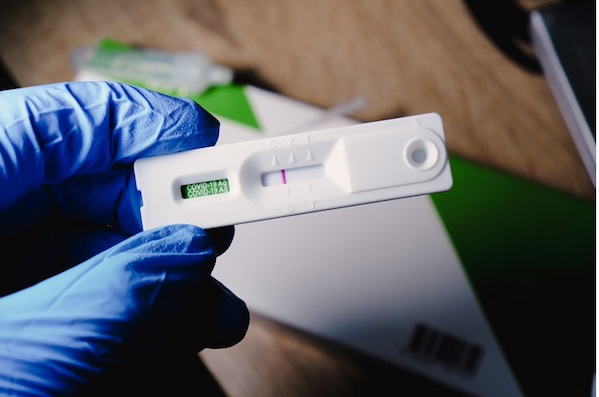New Testing Strips to Make Rapid Antigen Testing as Powerful as PCR Testing
March 8, 2024
Source: drugdu
 498
498
 During the onset of the pandemic, individuals experiencing symptoms had to endure lengthy queues for lab-based PCR testing and then wait around two days for the results, to confirm if they were infected with the COVID-19 virus. This process was not only inconvenient but also involved complex and costly logistics, contributing to testing delays and increasing the risk of spreading the disease. Now, a newly developed biosensing technology enables the creation of gene test strips that can match the quality of traditional lab-based tests.
During the onset of the pandemic, individuals experiencing symptoms had to endure lengthy queues for lab-based PCR testing and then wait around two days for the results, to confirm if they were infected with the COVID-19 virus. This process was not only inconvenient but also involved complex and costly logistics, contributing to testing delays and increasing the risk of spreading the disease. Now, a newly developed biosensing technology enables the creation of gene test strips that can match the quality of traditional lab-based tests.
The new technology developed by a team of biomedical engineers at UNSW Sydney (Sydney, Australia) offers test strips that are as accurate as lab-based PCR tests, with the added advantage of quick, on-site disease detection. Described by the researchers as having “PCR in your pocket,” this advancement holds potential for broad applications in biomedical and environmental diagnostics across various sectors, including food, agriculture, and biosafety management. The technology allows for the detection of specific gene sequences at room temperature, using test strips that resemble the familiar RAT Covid test, potentially eliminating the need for long queues at PCR testing centers and drastically reducing costs to a few dollars per test. The test strips could be instrumental in rapidly responding to new pathogens, identifying areas with high antibiotic resistance, or in conservation efforts for endangered species.
The process of achieving PCR-level accuracy with these new test strips involves the creation of minuscule DNA nano-circles, each containing a fragment of the target DNA, such as the COVID virus. These nano-circles, approximately 2 nanometres in size, are then combined with CRISPR/Cas proteins, which are programmed to interact specifically with the target pathogen's DNA. When these proteins encounter the target DNA, they cause the DNA nano-circles to linearize, creating an abundance of 'fake targets.' This method triggers a molecular chain reaction, resulting in a flood of these fake targets that are easily detectable by the test strips, even with minimal presence of the original gene target.
This technology has been demonstrated to accurately detect COVID-19 virus and Helicobacter bacteria, which are responsible for stomach ulcers. Potential applications of this biosensing method extend beyond health diagnostics to include biosecurity (detecting invasive marine species), environmental science (tracking threatened species through DNA testing of environmental samples), and even cancer diagnosis, as demonstrated by the team's successful detection of cancer mutations in clinical patient samples.
“We think we created a new benchmark in biosensing – our gene-based tests will be able to be performed anywhere, anytime, by virtually anyone,” said study author Dr. Fei Deng.
Source:
https://www.labmedica.com/molecular-diagnostics/articles/294800476/new-testing-strips-to-make-rapid-antigen-testing-as-powerful-as-pcr-testing.html
Read more on
- The first subject has been dosed in the Phase I clinical trial of Yuandong Bio’s EP-0210 monoclonal antibody injection. February 10, 2026
- Clinical trial of recombinant herpes zoster ZFA01 adjuvant vaccine (CHO cells) approved February 10, 2026
- Heyu Pharmaceuticals’ FGFR4 inhibitor ipagoglottinib has received Fast Track designation from the FDA for the treatment of advanced HCC patients with FGF19 overexpression who have been treated with ICIs and mTKIs. February 10, 2026
- Sanofi’s “Rilzabrutinib” has been recognized as a Breakthrough Therapy in the United States and an Orphan Drug in Japan, and has applied for marketing approval in China. February 10, 2026
- Domestically developed blockbuster ADC approved for new indication February 10, 2026
your submission has already been received.
OK
Subscribe
Please enter a valid Email address!
Submit
The most relevant industry news & insight will be sent to you every two weeks.



